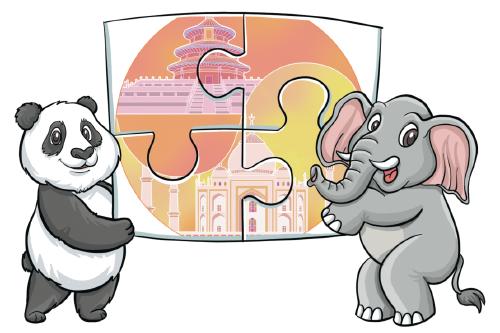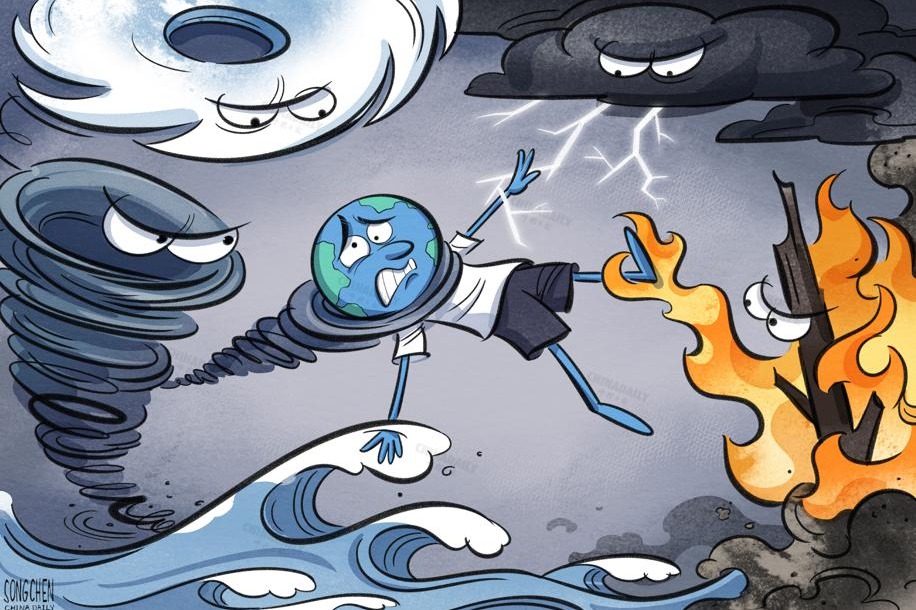Double trouble

Conserving the biodiversity of the Earth must go hand in hand with efforts to address climate change

Over 30 years ago at the Rio Earth summit, world leaders agreed on the Convention on Biological Diversity alongside the UN Framework Convention on Climate Change. This reflected the dawning global consensus that conserving the natural ecosystems of the Earth must go hand in hand with saving humanity from the scourge of climate change. These two are closely interrelated. The recognition of this led to the beginning of the holistic approach taken to address the sustainability agenda.
Ever since, intensive international efforts have been made, culminating in the Kyoto Protocol and the Paris Agreement as well as the 2030 Sustainability Agenda agreed in 2015 as sustainable development goals. But these efforts have all fallen short of arresting the worsening reality. The unsustainability crisis has not been alleviated but accelerating. Our demands on nature far exceed its capacity to supply the ecological goods and services we all rely on.
Natural assets are limited but we are using them as if they are infinite. The growth in prosperity for humanity has come at a devastating cost to nature. Biodiversity is now declining much faster than at any time in human history. Its extinction rates are alarmingly high. Our living standards are already estimated to require 1.7 planets.
What went wrong? We, the peoples around the world, collectively failed at all levels, national governments, international organizations and individuals. It is not only a market failure but also a serious failure of governance. Most governments exacerbate the problem by subsidizing unsustainable activities that exploit nature rather than protecting it. We lack the credible institutional arrangements to protect global commons such as the oceans or the rainforests which are serving as the lungs of humanity. It is also an individual failure of all of us, as excessive and wasteful consumption behavior aggravates environmental degradation.
May 22 was International Biodiversity Day, which was celebrated under the slogan of "We're part of the solution #ForNature". This slogan builds on last year's slogan, "Our solutions are in nature". These slogans are a stark reminder of the need to turn nature from the object of human exploitation to the enabler of sustainable solutions, and to transform human behavior from nature-abusing consumer to nature-friendly agent of change. Biodiversity enables nature to remain productive, adaptable and resilient. It is also vital to the attainment of most of the SDGs. Conversely, biodiversity loss poses serious risks to human well-being and livelihoods. The novel coronavirus outbreak is a vivid example of such risks threatening human health.
Gaps in knowledge still exist. But scientific assessments overwhelmingly support the need for the holistic and coordinated policy responses that address global challenges as a whole in protecting the Earth's ecosystems. Biodiversity and healthy ecosystems not only support a range of socioeconomic activities but also impact the quality of human life including health and the sustainable use of key resources such as water, air and energy. Mainstreaming biodiversity and ecosystems into various socioeconomic activities will allow us to catch two birds with one stone, halting the biodiversity loss and mitigating the climate change risks.
For this, nature needs to enter socioeconomic decision-making in the same way as physical capital and human capital do. It requires changing our measures of socioeconomic performance. Conventional GDP does not account for the depreciation of assets, including the natural environment. Introducing natural capital into national accounting systems would be a critical step toward making our wealth calculation more pertinent. Frameworks for natural capital accounting are at different stages of development. Standardization of data and modeling, as well as technical support, would make it easier to improve greener decision-making around the world. A pilot project for Gross Ecosystem Product was recently done in China.
These tasks for mainstreaming and measuring biodiversity and ecosystem assets are daunting. They require all stakeholders in both the public and private sectors to act together and coherently. It cannot be done by one government or one organization alone, regardless of how powerful or resourceful it is. Unfortunately, however, the need for a coordinated global response is hampered by global political dynamics. The resulting global governance deficit weakens the international response while the reality is worsening at an alarming pace.
A persisting challenge is how to translate the common but differentiated responsibility into an actionable norm to bridge the finance deficit for the developing countries in executing climate adaptation and sustainable development programs. Normative efforts are compounded by the two divides prevailing in the international community in terms of wealth (North vs South) and value (West vs former East). The second divide was expected to dissipate with the end of the Cold War, but it did not. In many areas, it poses more serious hurdles than the first divide in bridging the governance deficit. The overall political climate does not look favorable, as the tensions between the United States and China show no signs of easing.
Not much time is left to conserve nature and act. The point of no return may hit us soon. Now is the time for the major players, in particular the US and China, to engage seriously with each other to identify common ground and build on it. They can start from the areas of high stakes and low differences. To this criteria, there is no other agenda that is more befitting and urgent than preventing climate Armageddon. Dialogue must start bilaterally. If that is politically difficult at an initial stage, multilateral venues can be utilized, such as the G20 and the United Nations. Timely opportunities will come at the 15th Conference of the Parties to the CBD(COP 15) and the 26th Conference of the Parties to the UNFCCC (COP 26), scheduled to be held this year respectively in China and the United Kingdom, to set a new ambitious direction for the future we all want. If properly seized, these occasions can serve to build mutual understanding and working trust.
The future for us and our descendants is at stake. We all need to change. No other option is possible, as we do not have a planet B.
The author is the former under secretary-general of the United Nations and the high representative for Disarmament. He is now the chair of the International Advisory Board of the Future Consensus Institute (Yeosijae) and the member of the Group of Eminent Persons for the Comprehensive Nuclear Test Ban Treaty (CTBTO). The author contributed this article to China Watch, a think tank powered by China Daily. The views do not necessarily reflect those of China Daily.


































